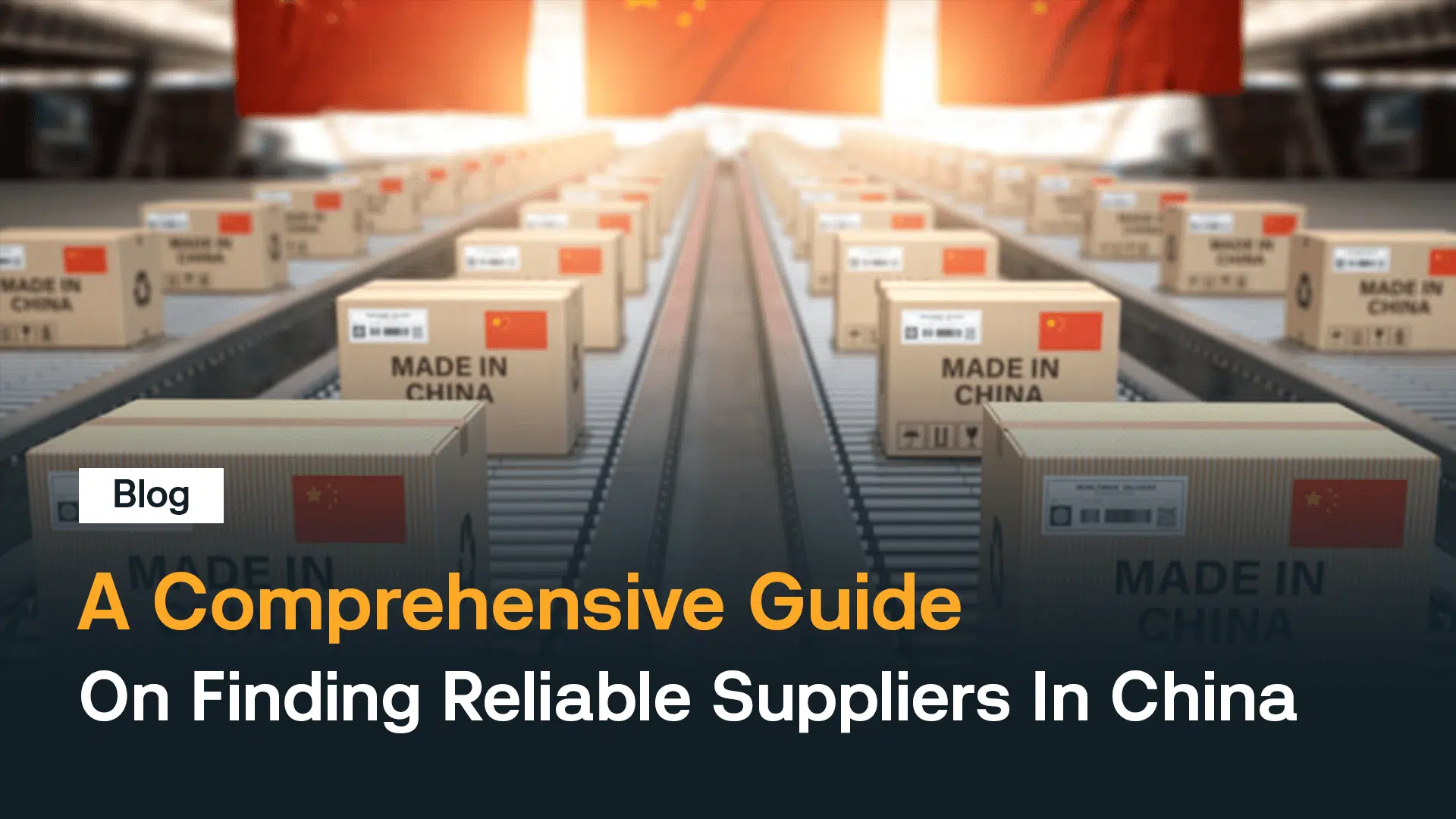Finding genuine suppliers in China is crucial for businesses that are looking to source products at competitive prices while ensuring quality and reliability. China’s manufacturing sector is one of the largest in the world, the country offers numerous chances for businesses of all sizes. However, finding a trustworthy supplier can be quite challenging. There are so many different factors that you need to keep in consideration. We have compiled a comprehensive guide to help you understand the process of finding genuine suppliers in China.
Understanding the Types of Suppliers in China
It is important to know the different types of suppliers that you may encounter in China.
- Manufacturers: These are companies or firms that directly produce products. When you work directly with a manufacturer, it often allows for better pricing and customization options. The tricky part is they might have higher MOQs (Minimum Order Quantities).
- Trading Companies: These companies act as intermediaries between manufacturers and buyers. Such companies are more flexible with MOQs and they have a wider range of products. The best thing about such companies is that they may offer more flexibility with MOQs and a wider range of products. The shadowy part is the prices might be slightly higher because the companies usually charge for being an intermediary.
- Sourcing Agents: Sourcing agents work on behalf of foreign buyers to find suitable suppliers. If you are looking for personalized experience, quality control management and to avoid the language barriers, sourcing agents are the best. But you have to ensure that the agent is reputable.
Conducting Preliminary Research
Conducting thorough research is the first step in finding a genuine supplier. Here are some methods to begin your search:
- Online Directories: Websites like Alibaba, Global Sources, and Made-in-China are some of the popular platforms where you can find a wide range of suppliers. There are various tools available on these platforms to verify supplier credentials for instance customer reviews, third-party verification services etc.
- Trade Shows: Attending trade shows in China, such as the Canton Fair or China International Industry Fair, can provide direct access to a large number of suppliers. Trade shows allow you to meet suppliers face-to-face, examine product samples, and establish relationships.
- Industry Networks and Referrals: Collaboration within your industry can produce valuable recommendations for reliable suppliers. Engaging with other businesses that have experience sourcing from China can provide useful insights and referrals.
Verifying Supplier Credentials
After you have made a list of all the potential suppliers, the next important step is to verify their credentials. This process is significant as it helps avoid scams and ensure whether the supplier is capable of meeting your needs. For verifying suppliers, you should;
- Check Business Licenses: You can always request a copy of the supplier’s business license and get it verified through China’s official government websites, such as the National Enterprise Credit Information Publicity System. You can check all the basic details about the company here. This also ensures that the company is legally registered and operational.
- Assess Factory Capabilities: If possible, visit the supplier’s factory. You may also hire a third-party inspection company to conduct a factory audit. Such audits help to verify the supplier’s production capabilities, quality control processes, and working conditions.
- Review Product Certifications: Make sure that the products meet international standards by checking for necessary certifications such as ISO, CE, or RoHS. This is mainly vital for products that require regulatory compliance in your home country.
- Evaluate Online Presence: A genuine supplier should have a professional website and active presence on business platforms like LinkedIn or Alibaba. Review their online presence for consistency and professionalism.
Communicating Effectively
Effective communication plays an imperative role in establishing a successful partnership with a supplier in China. Miscommunication can lead to misunderstandings, delays, and subpar products.
- Clarify Specifications: Clearly outline your product specifications, including materials, dimensions, and quality standards. Use detailed drawings or samples to minimize any ambiguity.
- Negotiate MOQs: Always discuss minimum order quantities (MOQs) upfront so that they align with your business needs. You can often negotiate MOQs especially dealing with smaller or newer suppliers.
- Request Samples: Before you place a large order, it is always beneficial to request samples to assess product quality. This also allows you to test the supplier’s ability to meet your specific requirements.
- Use Contracts: Drafting a clear contract that outlines all terms is very important. The contract should include payment schedules, delivery timelines, and quality standards. Make sure you put everything in black and white.
Assessing Payment and Shipping Terms
Understanding payment and shipping terms is significant to minimizing risks when dealing with Chinese suppliers.
- Payment Methods: Common payment methods include bank transfers, letters of credit, and escrow services offered by platforms like Alibaba. Better to avoid suppliers who insist on full payment upfront, as this might be a red flag for potential scams.
- Shipping Terms: Discuss Incoterms (International Commercial Terms) to clarify who is responsible for shipping costs, insurance, and customs clearance. This is helpful in preventing unexpected expenses and delays.
- Quality Control: Try to implement quality control checks before, during, and after production. You can always consider hiring a third-party inspection company to perform these checks to ensure the products meet your standards before shipment.
Building Long-Term Relationships
Finding a genuine supplier is just the first step. Building a long-term, trusting relationship with your supplier is vital to ensuring consistent quality and reliability.
- Regular Communication: Once you have found a good supplier, maintain regular communication to stay updated on production progress and address any issues promptly. Building rapport with your supplier can lead to better service and more favorable terms. You can also get access to new updates about the products before they are introduced in the market. This gives you a competitive advantage.
- Order Consistency: Consistently placing orders with the same supplier makes you a valued customer. Suppliers are more likely to prioritize orders from regular customers. They may also offer better pricing, discounts or payment terms.
- Mutual Respect: Your supplier is your partner. Treat him more than just a service provider. A mutually respectful relationship can lead to better collaboration and long-term success.
Staying Vigilant
Even after establishing a relationship with a supplier, it’s important to stay vigilant.
- Monitor Quality: Continuously monitor the quality of products received. Consider conducting periodic inspections and address any quality issues immediately.
- Be Wary of Sudden Changes: Always be cautious if your supplier suddenly changes prices, product quality, or delivery times and too without reasonable explanation. This could indicate underlying issues that need to be addressed. You should choose to conduct supplier and factory audits at regular intervals.
- Diversify Suppliers: Try working with multiple suppliers to mitigate risk pertaining to quality, production or prices. Having a backup is always useful in case one supplier fails to meet your expectations.
In order to find genuine and good suppliers in China you should perform thorough research and verification. Also do not underestimate the power of effective communication. By following these steps, you can minimize risks and establish a reliable supply chain that supports your business’s growth and success. Whether you’re sourcing products for the first time or looking to expand your supplier base, a careful and strategic approach is essential to navigating the complexities of the Chinese market.
Also Read:
Strategic Sourcing: The Key to Long-Term Procurement Success – Markhor Strategies


